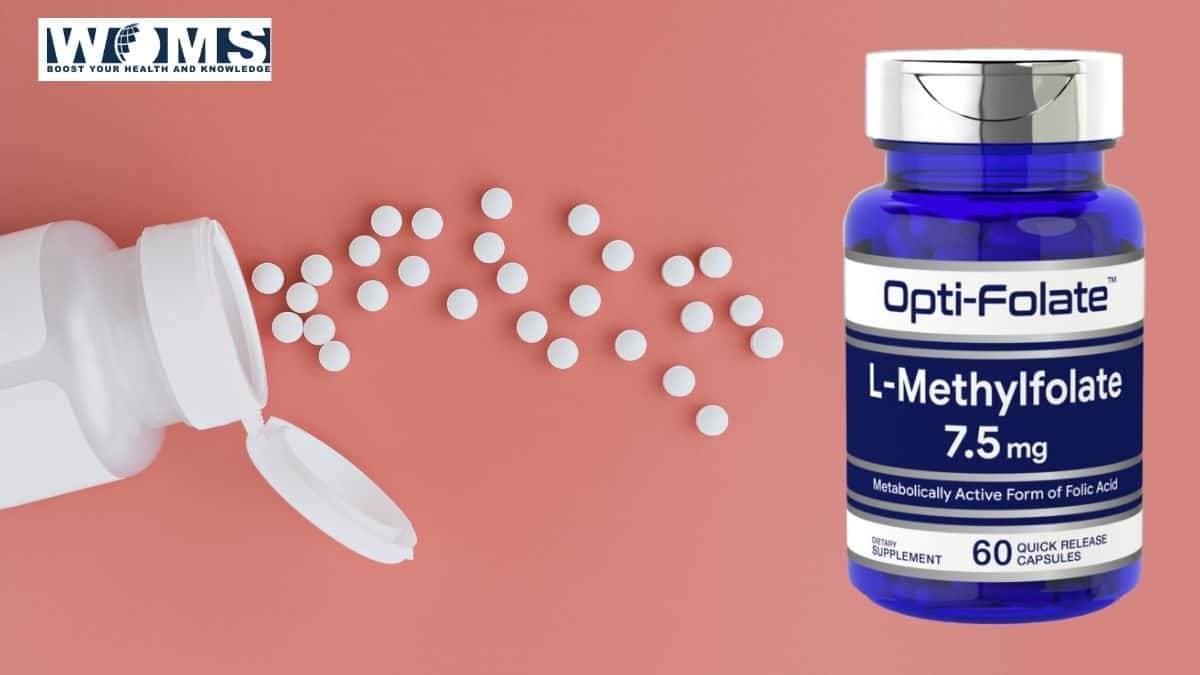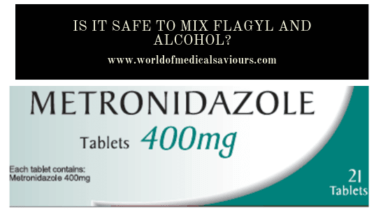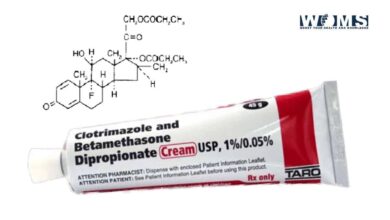How Methylfolate can help in combating low Folic Acid levels?

Folate is a naturally occurring B vitamin, found in some foods. The synthetic form of folate is folic acid. Folic acid supplements come in various forms such as methylfolate, tetrahydro-methyl folate, and levomefolate.
We need folic acid or folate supplements to combat low folate levels. Low folate levels can occur due to pregnancy, kidney and liver disease, alcohol intake, malnutrition, and gastrointestinal issues. The use of methylfolate is especially necessary for pregnant women or women who plan to become pregnant to prevent the risk of congenital spinal cord defects.
Uses of Methylfolate
Methylfolate is used to combat low folate levels. Folic acid helps to produce new red blood cells in the human body. With this in mind, low folate levels can cause decreased production of red blood cells and anemia. Doctors prescribe methylfolate supplement in the following conditions:
1. Pregnant women
Pregnant women require adequate intake of folic acid in the form of l-methylfolate. This is essential for the proper growth and development of the brain and spinal cord of the embryo. Under those circumstances, doctors recommended taking methylfolate supplements throughout the first trimester of pregnancy. Moreover, methylfolate is a category A drug according to FDA. This means that it is safe to use in pregnancy and causes no harm to the developing embryo.
2. Women of childbearing age
Doctors usually advise women of childbearing age to start taking methylfolate supplements without delay if they plan to become pregnant.
This is because folic acid and its derivatives are essential in the first stages of pregnancy.
3. Anemic patients (megaloblasticanemia)
Megaloblasticanemia occurs due to vitamin B12 deficiency. It occurs most commonly in elderly patients. Folic acid intake masks the signs and symptoms of megaloblasticanemia, delaying treatment. On the contrary, L-methylfolatesupplements help in diagnosing megaloblasticanemia as they do not mask the symptoms of megaloblasticanemia.
4. Depression (major depressive disorder)
Methylfolate increases the production of the “happy hormones” called dopamine and serotonin. These brain chemicals help in elevating mood and treating depression or depressive spells.
5. Schizophrenia
High doses of l-methylfolate can prove to be very effective in patients suffering from schizophrenia.
6. Patients of kidney and liver disease
In patients suffering from kidney or liver disease, the levels of folic acid are considerably low. This is due to excessive excretion of folic acid via urine in case of kidney disease. On the other hand, improper metabolism of folic acid in liver impairment can cause low folate levels in the body. For this reason, doctors prescribe methylfolate to these patients to combat low folic acid levels.
7. Cardiovascular Disorders
Methylfolate supplements are useful in patients of cardiovascular disorders as an adjunctive treatment because it lowers homocysteine levels in the blood.
How does Methylfolate work?
L-methylfolate is the active form of folic acid in the human body. Folic acid forms tetrahydrofolic acid which is a cofactor for many chemical reactions in the body. As a matter of fact, these chemical reactions involve the synthesis of purines and pyrimidines of nucleic acids and promote normal cell division.
The mechanism of action of methylfolate in the treatment of depression is unknown. However, some studies reveal that l-methylfolateis the only form of folic acid capable of crossing the blood-brain barrier. It crosses the blood-brain barrier and passes into the brain matter to form serotonin, norepinephrine, and dopamine. These chemical signals (serotonin, norepinephrine, and dopamine) help treat depression.
Directions to use Methylfolate
- Read the leaflet thoroughly which comes with the medication before starting methyl folate. Follow your physician’s instructions properly.
- In case of any queries, consult your physician from time to time to guide you.
- Do not increase the dose of the medication without consulting your health care provider.
- Take the medication regularly at a fixed time to achieve maximum benefits.
- The medication can be taken with or without food.
- Swallow it as a whole. It’s not recommended to chew, crus or break.
- Do not consume more than the recommended dose.
- Do not use it after the expiration date.
Dosage
Take methylfolate once daily with or without food. The recommendation is to take medicine with your main meal of the day.
Methylfolate in megaloblasticanemia:
Take 7.5-15 mg of methylfolate supplement once daily
Methylfolate in depression
Your doctor may prescribe methylfolate supplements as an adjunctive treatment to antidepressants.
Take 7.5-15 mg of the supplement once daily
Side Effects of Methylfolate
Most people using methylfolate supplements do not experience any side effects. Nevertheless, side effects are prone to occur in some population, and these include:
- Nausea
- Weight loss
- Irritability
- Confusion
- Altered sleeping patterns
- Flatulence (gas)
- Difficulty in concentrating
- Bitter taste
- Mild to severe allergic reactions can be seen which include symptoms such as rash, swelling, redness, itching, and trouble in breathing.
- Anorexia
- Abdominal distention
Your doctor might be well aware of your condition and would have recommended the medication after weighing the risks against its benefits.
Precautions to use Methylfolate
- Before you start using methylfolate, inform your doctor if you have any allergies or in case you are allergic to the medication. Also, inform about any nutritional deficiencies, especially of Vitamin B12 (pernicious anemia).
- If you are undergoing any surgeries, let your surgeon know about all the medications you are taking.
- In addition to this, it is completely safe to use methlyfolate in pregnancy and is a prenatal vitamin. In fact, the administration of methylfolate protects against spinal cord birth defects. Moreover, it passes the breastmilk and is not harmful to the infant. So, it is safe to use methylfolate in lactating women as well.
- Keep out of the reach of children and pets.
- Store in a cool and dry place.
- Use the medication according to the doctor’s instructions. Do not increase the dosage or frequency as it can result in aggravation of side effects.
- Do not use methylfolate after the expiry date.
- Dispose of the medicine properly and do not flush it down the toilet.
- If you take the medication out of its original packing or container, it cannot be stored properly. So keep it in its original container for proper storage.
- Do not keep it in moist conditions such as in the washroom or at the sink. Moisture can destroy the medication.
- Do not share or recommended methylfolate to anyone else even if they have the same symptoms.
Contraindications of Methylfolate
Contraindications of methylfolate include:
- Hypersensitivity to folic acid or l-methylfolate
- Intolerance to folic acid or methylfolate supplements
- Do not use methylfolate in megaloblasticanemia or pernicious anemia if you already have vitamin B12 deficiency.
- Inform your doctor if you have bipolar disorder or suffer from seizures or epilepsy.
- L-methylfolate is contraindicated in cancer patients as it can promote the growth of precancerous or existing cancer cells. Moreover, methylfolate can contribute to the development of colon cancer if taken in the long run.
Interactions of Methylfolate with other medications:
Before starting methylfolate, inform your doctor about all prescription and non-prescription drugs you are already taking.Keep a list of all the medicines with you and show it to your doctor. Above all, do not start or stop any medication by yourself without consulting your doctor. Also, inform your doctor about any other health conditions you are suffering from.
Methylfolate has mild to severe interactions with other drugs. Inform your doctor if you take any of the following medications:
- fluoxetine
- isotretinoin (vitamin A derivative)
- methotrexate
- methylprednisolone
- pancrelipase
- pyrimethamine
- triamterene
- Warfarin
- birth control pills (contraceptive pills)
- metformin (anti-diabetic medication)
- NSAIDs (nonsteroidal anti-inflammatory drugs) such as aspirin, ibuprofen, naproxen, celecoxib, diclofenac, indomethacin, meloxicam, etc.
- Anti-seizure medicine such as carbamazepine, lamotrigine, phenobarbital, phenytoin, primidone, valproic acid, etc
Interaction of Methylfolate with food
Certain foods can interact with l-methylfolate supplements and it may not work well. These foods include:
- Dairy products (such as milk, cheese, and yoghurt)
- Eggs
- Fortified cereals
- Whole-grain bread
- Coffee
- Tea
When to visit the doctor
Your doctor may prescribe you methylfolate supplements in the view that their benefits are greater than the risk of side effects. However, inform your doctor if you notice any of the following symptoms or if the side effects worsen:
- Persistent vomiting
- Flatulence which does not go away
- Swelling of face, lips, and throat
Overdosage
If someone has overdosed on methylfolate supplements, contact your doctor as soon as possible or the poison control center.
Overdosage means more frequent use of the drug than your doctor prescribed or used in higher doses than recommended.
L-methylfolate overdose can contribute to the development of colon cancer because folate helps in cell division. Excessive amounts of methylfolate result in abnormal cell division, resulting in cancer.
L-methylfolate PNV DHA capsule
This is a multivitamin and contains both iron and folic acid along with other minerals. This medication is given before, during, and after pregnancy in the light that methylfolate supplements will reduce the risk of developing spinal cord defects in infants.
Folic Acid via diet
In addition to methylfolate supplements, folic acid is present in certain fortified foods. Including the following foods in your diet can be helpful for people with low folate levels to achieve better and faster results while they are taking methylfolate:
- Legumes (such as beans, peas, and lentils)
- Eggs (they are also loaded with vitamin B12)
- Asparagus
- Beets
- Leafy green vegetables (such as spinach)
- Broccoli
- Cabbage
- Citrus fruits (such as orange, lemons, grapefruit, and limes)
- Nuts (such as walnuts)
- Seeds (such as flax and chia seeds)
- Wheat germ (embryo of wheat kernel)
- Beef liver
- Bananas
- Papaya
- Avocado
- Fortified grains (such as bread and pasta)
A Little Comprehension
To sum up, l-methylfolate is essential for patients with low folic acid or folate levels. To repeat, pregnant women or women of childbearing age should ensure sufficient intake of folic acid via l-methylfolate supplements or through diet. This helps in the proper growth and development of the brain and spinal cord of the growing embryo. Moreover, doctors prescribe methylfolate as an adjunctive treatment in major depressive disorder. This is because it increases the levels of neurotransmitters in the brain such as dopamine, serotonin, and norepinephrine.
However, patients suffering from bipolar disorder, epilepsy, cancer, or hypersensitivity to l-methylfolate should avoid the use of methylfolate supplements.
Frequently asked questions
What is methylfolate?
Methylfolate is a folic acid supplement. Doctors prescribe this supplement for women of childbearing age or pregnant women. Moreover, anemic patients or patients suffering from depression can also use methylfolate supplements. It has a very mild side effect profile.
What is the Recommended Dietary Allowance (RDA) of folic acid?
The Recommended Daily Allowance (RDA) or upper limit of folic acid administration through folic acid supplements and food intake is 1000 mcg for pregnant women.
Can methylfolate treat depression?
Methylfolate isn’t an antidepressant or antipsychotic. Doctors prescribe it as an adjunctive treatment for major depressive disorder or schizophrenia. L-methylfolate increases the production of “happy hormones” in the brain. These are serotonin, dopamine, and norepinephrine. Without a doubt, increased levels of these neurotransmitters help treat depression.
Why methylfolate supplements are essential for pregnant women?
Methylfolate supplements provide folic acid for the growing embryo which is necessary for the proper growth of the spinal cord. Low folate levels can result in a condition called neural tube defect (NTD). On the other hand,decreased folate can also cause peripheral neuropathy and anemia in pregnant women.
Inform your doctor if you are pregnant or breastfeeding as the dose of methylfolate needs to be increased in pregnant and lactating women.
Can I get a refillable prescription for this medication?
Yes, the prescription for methylfolate is refillable. You would not need a new prescription for this medication every time. Your doctor will write the entire course of medication or the number of refillable on your prescription.
What if I miss a dose?
If you miss a dose or forget to take one, consume it as soon as you remember. If it’s time for the next dose, skip the previous one. Never take a double dose at a time. If you forget doses often, set an alarm as a reminder.
How should I store the medication?
Remember to store methylfolate in a cool and dry place. Keep it away from moisture and heat. The temperature should be between 15 to 30 degrees Celsius.
Can I take methylfolate on an empty stomach?
It is better to take methylfolate on an empty stomach as it works better. But if it causes stomach upset, you can take it with a full stomach too. Nevertheless, use the medication as prescribed by your health care provider.
What foods should I avoid when taking methylfolate supplements?
Certain foods can interact with l-methylfolate supplements and it may not work well. These foods include dairy products (such as milk, cheese, and yogurt), eggs, fortified cereals, whole-grain bread, coffee, and tea.
What are Myfol tablets?
Myfoltablets are available as over-the-counter medications. They contain l-methylfolate which is helpful to combat low folate levels in the body.




